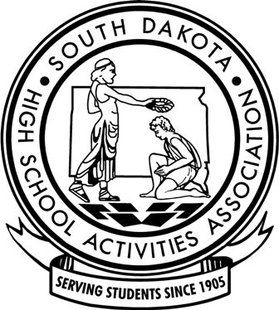Controlling Interruptions
Does anyone doubt that the passage of time complicates the Athletic Director position? Almost monthly, it inherits new responsibilities without disinheriting the old.
Since many A.D.s, including myself, have neither an assistant nor a secretary, they must rely strictly on good organizational and time management skills to get the job done.
Certainly, you anticipate interruptions in your daily or weekly schedules, because they will occur and often require your immediate attention. This is simply the nature of athletics. If you are unable to survive in our hectic, time-consuming position, you will have to control some of your interruptions.What many A.D.s usually define as an emergency requiring immediate help is simply a matter of poor or no planning. The problem arises when you stop to help these “needy” souls at a time when you already have a ton of things to do and a deadline connected with the task.
It may be valuable, not only for both you and your coaches to define what a true emergency entails. For example, my list includes anything involving…
- Health and safety of student-athletes.
- Risk of damage to facilities and equipment.
- Hardship or disadvantage for student-athletes.
- Deadlines for eligibility or tournament entry.
For reasons other than the aforementioned, you may be forced to wait until the next day. Immediate action based on interruptions means missing other priorities on your daily schedule.
Interruptions don’t always have to come from individuals in person. Actually, many phone calls can be highly intrusive and affect your ability to operate effectively. As an experiment, I recently charted my phone calls for a week and confirmed my suspicions that over 50% were sales pitches and inquires that had nothing to do with the current operation of our department.
The following hints may help in you control some of your interruptions in your work schedule:
1. Require appointments whenever possible, but you will still have to handle the sudden emergencies. With advanced notice, you’ll be able to schedule convenient times.
That means you can arrange your other responsibilities and tasks around such meetings. If you expect any contention, this will give you time to prepare.
2. Ask your main office secretaries and assistant principals not to send vendors, college recruiters, or parents down to your office unless they have an appointment. Unannounced meetings, even if the individuals promise to be brief, can be extremely intrusive.
3. Define for coaches and parents what an emergency entails for you and how you will have to use your time wisely. This can be done in pre-season meetings with both groups and in printed documents such as agendas and handbooks.
4. Educate your coaches on when and how to make requests. In addition to listing this explanation on the agenda for your pre-season coaches’ meetings, you will do well to occasionally send an e-mail reminder. Helping coaches understand your expectations and procedures will help avoid interruptions.
5. Close your office door whenever you have tasks that have to be completed and require complete concentration. If you aren’t under a deadline and have some latitude, leave your door open. It is often an effective statement in itself.
6. Put a sign on your door whenever a closed door is not enough to dissuade obtuse individuals from knocking. Your sign could be as simple as, “Please do not disturb.”
Other possibilities depending upon your personality, setting, and the reason for uninterrupted time, could include:
- “In conference”
- “Currently tied-up”
Unfortunately, my office door has a window and, therefore, a sign does little good.
7. Use your answering machine to screen calls whenever you have to complete some work in your office. If you don’t have a secretary, this is a great way to determine which calls are frivolous and unessential. You may return calls whenever it is more convenient with your schedule and obligations.
8. Specify the times you are available whenever you leave a message for others. This will help avoid the maddening ritual of phone tag.
9. Record an informative message on your answering machine, such as, “I’ll return your call when I can.” Whenever you state, “As soon as possible,” many expect an instant answer, which really isn’t always possible or efficient.
10. Post your team schedules on your school’s website or use one of the Internet scheduling companies. By immediately posting any postponements, cancellations, and changes, and educating the parents of your athletes, you will eliminate many of the phone calls such as, “Is the game still being played today?”
It simply is not a very productive use of time to have to answer a number of these calls when you have other details to attend to during inclement weather.
11. Find another location in the building to do any work that needs uninterrupted time. There is always another option if you just look around creatively. Perhaps you can use a corner of your library, a conference room, or, as in my case, a locker room that hasn’t been used in years except to store equipment. It does have a desk, chair and lights – what more do you need?
It is important to note that I don’t consider student-athletes popping in unannounced as interruptions. After all, we are in the student business and have to help whenever needed. Also, students have classes to attend and don’t always have the unlimited time to set up an appointment.
While you will never eliminate all intrusions in your schedule, the key lies in effectively controlling them. To survive and thrive in your position, you have to be as efficient as possible in controlling these unplanned interruptions.





